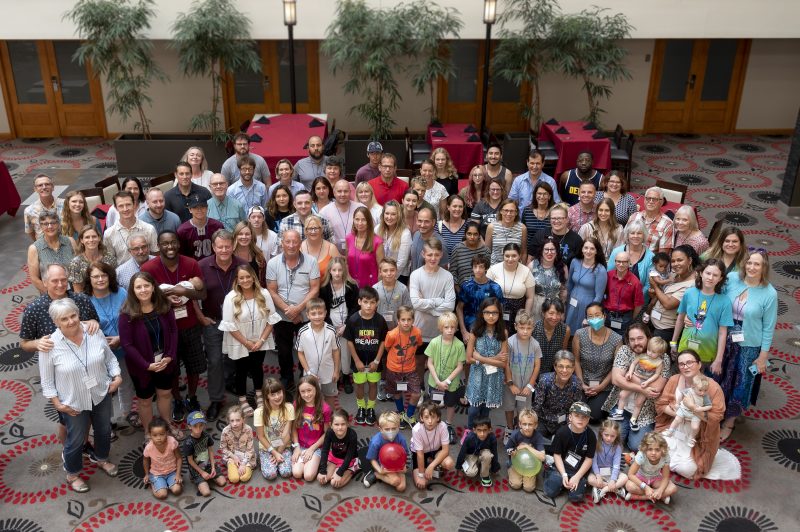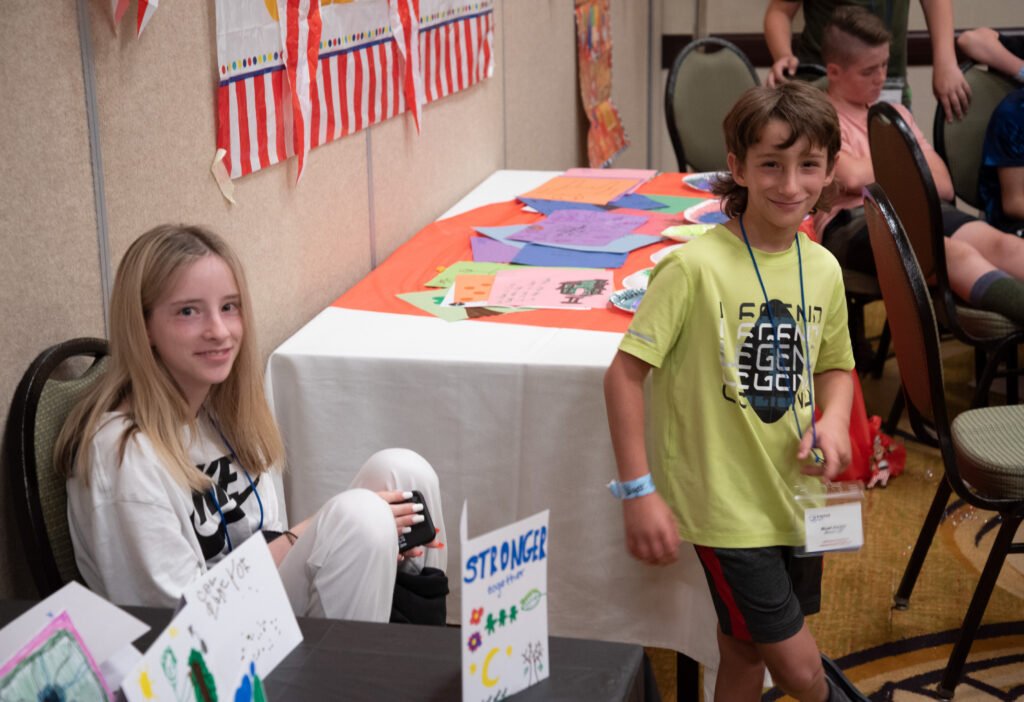PUBLISHED: 27th June 2024

by Mary Treder, Vice Chair of the Board of Directors
A few months before his second birthday, my grandson was diagnosed with Bloom syndrome.
Learning that a child you love has an ultra-rare disorder marked by a greatly increased risk of developing cancer is a shock. Compounding a very real fear for your child’s life is the feeling of isolation. Your affected child may be the only Bloom syndrome (BSyn) patient in your state or region of the country that you live in, and your doctors likely have little to no knowledge of the disorder.
About Bloom syndrome
Bloom syndrome is an autosomal recessive inheritance disorder that leads to instability in a person’s DNA. The most obvious and overall consistent symptom of BSyn is small stature, while other symptoms may include sensitivity to sunlight, immune system deficiencies, frequent or chronic respiratory illness, decreased or absent fertility and diabetes. But most concerning is that individuals with BSyn are at an increased risk for developing cancers due to their genetic instability.
History
Bloom syndrome was identified in 1954 by Dr. David Bloom, who suggested that the syndrome was genetic; this was later confirmed through mapping of the BLM gene in the 1990s. The international Bloom Syndrome Registry (BSR), which was established in 1960, gathers information about BSyn patients and their families and collects DNA and biological specimens for research purposes.

In 2008, the Registry listed 264 persons as being affected by the disorder, and an informal advocacy and support group for persons with BSyn and their families was started. That year, patients, families and medical scientists met for a Bloom Syndrome Workshop at the University of Chicago. At that time, 45 percent of the individuals listed on the Registry had experienced one or more cancers; that number has since been updated to 53 percent, with nearly a third of those experiencing more than one malignancy.
The Bloom Syndrome Association (BSA) is a nonprofit patient advocacy organization founded in 2012 to ensure that the synergies from Chicago would be sustained, and that the collaboration between BSyn families and researchers would continue in earnest. Our mission is to connect, educate and support the international Bloom syndrome community and stimulate research that leads to longer, healthier lives.
Supporting the Bloom syndrome community
A key element of BSA’s support is welcoming new members to our community and letting them know that the BSA has resources and information to support families and medical providers. From a Checklist that guides new member families as they start their Bloom journey, to a Patient and Family Handbook that summarizes in plain language the current understanding of Bloom syndrome and provides “insider” information based on experience, to ambassadors in different geographic locations, new members learn that they are not alone and that we truly are stronger together.
Patient and family conferences
In the tradition of the 2008 Bloom Syndrome Workshop, the BSA regularly endeavors to bring patients, families and researchers together to educate, inform and build community. Past conferences have been held in Seattle, WA; Beaverton, OR; Chiba, Japan and Chicago, IL, and an Online Community Gathering during the COVID pandemic.

This year we are excited to host our first conference in Europe, which will take place in Frankfurt, Germany August 2-4. Beyond Borders: 2024 Bloom Syndrome Conference will offer an engaging and fun program that will include opportunities to talk to Bloom syndrome experts, learn more about the syndrome and connect with others in the community. Virtual participation in selected conference sessions will be offered for those who are unable to attend in person.
Conference sessions will include Thriving with Bloom Syndrome, updates from the Bloom Syndrome Registry, Rare-X and recent BSyn research, an overview of what is known about cancer in BSyn, what to do when a cancer diagnosis is received and interviews with Bloom cancer survivors. Also included will be an overview of the Bloom syndrome clinic at the Rare Disease Centre at Guy’s and St. Thomas’ Hospital in the UK, a small group discussion on topics including Bloom-related non-cancer health concerns, parenting children with BSyn and living as an adult with BSyn.
For most Bsyn patients, the conferences are the only opportunity to be around others with Bloom syndrome, and they look forward to reconnecting with friends. It is also bittersweet, as we remember our Bloom syndrome friends who have passed away since the last conference.
To learn more about Bloom syndrome and the Bloom Syndrome Association, visit our website at http://www.bloomsyndromeassociation.org.